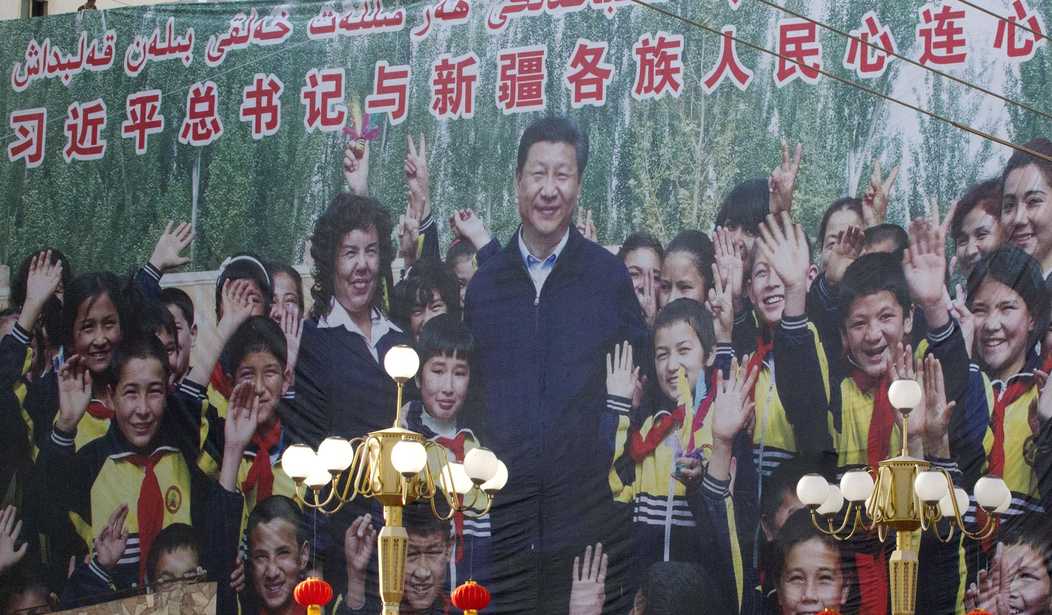A new report from cybersecurity firm Mandiant — which has a history of exposing online threats from Chinese-aligned communist groups — details efforts over the last several years by “Pro-PRC (People’s Republic of China)” groups to ramp up propaganda efforts online by expanding them across social media platforms, websites, and forums in several different languages.
Somewhat mystifyingly, American progressives seem to be helping the Pro-PRC effort.
Mandiant said in a blog post on September 8 that it was building on its previous work of exposing the network of “hundreds of inauthentic accounts on Twitter, Facebook, and YouTube, that was at that time primarily focused on discrediting pro-democracy protests in Hong Kong.”
Since then, the broader activity set has rapidly expanded in size and scope and received widespread public attention following Twitter’s takedown of related accounts in August 2019. Numerous other researchers have published investigations into various aspects of this activity set, including Google’s Threat Analysis Group, Graphika, the Australian Strategic Policy Institute, the Stanford Internet Observatory and the Hoover Institution, and the Centre for Information Resilience.
The Daily Signal reported that while the new report doesn’t overtly link the expanded propaganda efforts to the Chinese Communist Party (CCP), the activity is similar to other, past online efforts to highlight and promulgate the same positions take by official state actors of the CCP.
Though the researchers did not explicitly link the botnet to the Chinese government, fake pro-China accounts have previously been found amplifying Chinese officials’ messages on social media platforms.
The Mandiant post asserted that the main focus of the new report was an attempt to highlight changes they’ve noticed about the network since they began tracking their behavior in 2019: increased scope of their malign digital activity and attempts to actively organize physical protests in the U.S.
- The scope of activity, in terms of languages and platforms used, is far broader than previously understood. Most reporting has highlighted English and Chinese-language activity occurring on the social media giants Facebook, Twitter, and YouTube. However, we have now observed this pro-PRC activity taking place on 30 social media platforms and over 40 additional websites and niche forums, and in additional languages including Russian, German, Spanish, Korean, and Japanese. While some platforms have hosted hundreds or thousands of accounts in the network, other platforms have hosted a smaller number. Collectively, these observations suggest the actors behind this campaign have significantly expanded their online footprint and appear to be attempting to establish a presence on as many platforms as possible to reach a variety of global audiences.
- Accounts in the network have actively sought to physically mobilize protestors in the U.S. in response to the COVID-19 pandemic, though we have seen no indication that these attempts motivated any real-world activity. While previous public reporting has highlighted limited instances of organic engagement with the network on Twitter and we have continued to track similar instances of organic engagement on both social media and niche online forums, this direct call for physical mobilization is a significant development compared to prior activity, potentially indicative of an emerging intent to motivate real-world activity outside of China’s territories. While this attempt did not appear to achieve any success, we believe it is critical that observers continue to monitor for such attempts in case greater degrees of organic engagement are later realized by the network.
Meanwhile, American institutions seem to have adopted a position of compliance with the CCP’s attempts to whitewash their human rights abuses and anti-Democratic behavior.
A Colorado high school asked to attend the U.N. Commission on the Status of Women. Before they could get approved by a committee—that China sits on—they had to change an old article on their site to say that Taiwan is a "Province of China.” A high school!https://t.co/rslrxOMQZp pic.twitter.com/RFvLSYsPWF
— Sarah McLaughlin (@sarahemclaugh) September 13, 2021
Add to this Stanford University professors begging the Biden administration to stop looking for Chinese spies in academia’s ranks, and it begins to look reaffirm concerns that America’s educational institutions are, at the very least, looking the other way at China’s propaganda and influence campaigns.
Political and educational leaders really ought to take a lesson from Hollywood on what happens when you try to appease communist China.
In 2020, the Chinese film market officially surpassed North America’s as the world’s biggest box office, all but ensuring that Hollywood studios will continue to do everything possible for access to the country. This also means China will assert itself more aggressively to control Hollywood. The country, which already places a quota on the number of foreign films that can be screened every year, banned them for nearly two months this summer because of celebrations for the 100th anniversary of the Communist Party’s founding.













Join the conversation as a VIP Member